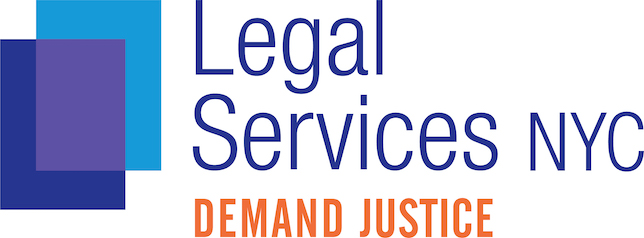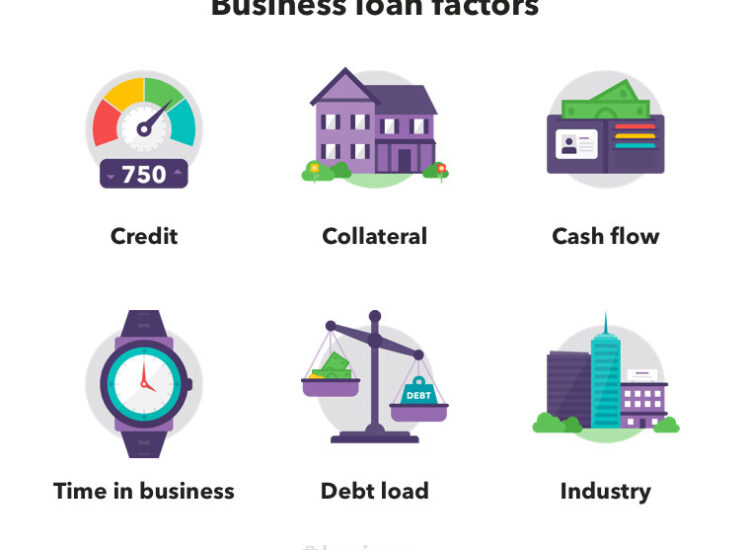Securing a home loan in India requires careful consideration of many factors, particularly the home loan interest rate in India. Current rates vary significantly, ranging from 8.50% to 10.75%, substantially impacting monthly payments and overall loan costs. This guide aims to simplify the complexities surrounding home loan interest rates, providing first-time buyers with the necessary information for informed decision-making. Understanding the fundamentals is crucial for successfully navigating this process.
Toc
- 1. Understanding Home Loan Interest Rates in India
- 2. How Home Loan Interest Rates Impact Your Finances
- 3. Factors Affecting Your Home Loan Interest Rate
- 4. Related articles 01:
- 5. Comparing Home Loan Interest Rates from Major Lenders
- 6. Recent Trends in Indian Home Loan Interest Rates
- 7. Related articles 02:
- 8. Utilizing a Home Loan Calculator for Informed Decisions
- 9. Strategies to Secure the Lowest Home Loan Interest Rate in India
- 10. Understanding Home Loan Schemes and Additional Costs
- 11. Frequently Asked Questions (FAQ)
- 12. Conclusion: Your Path to Smart Home Financing
Understanding Home Loan Interest Rates in India

When it comes to home loans, the interest rate is one of the most critical factors influencing your overall cost. The home loan interest rate in India refers to the cost you incur for borrowing money from a lender to purchase a home. This rate is expressed as a percentage of the total loan amount, significantly affecting your monthly EMI (Equated Monthly Installment) and the total repayment amount over the loan’s tenure.
The Basics of Home Loan Interest Rates
Home loan interest rates in India can be categorized mainly into three types: fixed, floating, and mixed. Understanding the difference between these options can help you make an informed decision.
Fixed Interest Rate
A fixed interest rate remains constant throughout the loan tenure. Borrowers often prefer this option for its predictability in monthly payments. However, fixed rates are usually higher than floating rates initially. This stability can provide peace of mind, especially for those on a fixed income or with limited financial flexibility.
Floating Interest Rate
With floating rates, the interest can change based on market conditions and the Reserve Bank of India’s (RBI) policy rates. This means your EMI could fluctuate during the loan tenure, offering the potential for lower payments during favorable economic conditions but also exposing you to the risk of rising costs if rates increase. Borrowers anticipating an increase in their income might find this option attractive despite the inherent risks.
Mixed Interest Rate
A mixed interest rate combines both fixed and floating rates. Typically, the loan may start with a fixed rate for a certain period before switching to a floating rate. This approach can offer a balance between stability and potential savings, catering to borrowers who want some predictability initially while still being open to future fluctuations.
How Home Loan Interest Rates Impact Your Finances
The interest rate you secure directly affects your monthly payments and the total amount you repay over the life of the loan. For instance, a slight difference in interest rates can lead to substantial savings. Consider this: on a home loan of ₹50 lakh with a tenure of 20 years, an interest rate difference of just 0.5% can save you nearly ₹6 lakh in interest payments over the life of the loan. Therefore, understanding how to compare rates and negotiate terms is crucial for first-time homebuyers.
Factors Affecting Your Home Loan Interest Rate
Several factors come into play when determining the interest rate a lender will offer you. Here are the most significant ones:
1. Credit Score: Your Financial Reputation
Your credit score is one of the most critical factors that lenders consider when determining your home loan interest rate. A higher credit score typically results in lower interest rates, often by several percentage points. Lenders perceive borrowers with strong credit histories as less risky, which can result in more favorable terms. Typically, a score above 750 is considered excellent, while scores below 600 may lead to higher rates or even loan rejection.
2. Loan Amount and Tenure
The size of the loan and the tenure you choose can significantly influence your interest rate. Generally, larger loans, especially those exceeding ₹75 lakh, may attract different rates compared to smaller loans. Additionally, shorter tenures usually come with lower interest rates because the lender’s risk decreases. For instance, a 15-year loan may carry a lower interest rate than a 30-year loan due to the reduced risk for the lender.
3. Loan-to-Value (LTV) Ratio
The LTV ratio is a key metric that compares the loan amount to the property’s value. A lower LTV ratio indicates a lower risk for the lender. If you can make a larger down payment, resulting in a lower LTV ratio, you may secure a better interest rate. Lenders typically favor an LTV ratio below 80%. A property with a higher value and a lower loan amount can enhance your position when negotiating interest rates.
4. Employment Status and Income
Your employment status and income stability also play crucial roles in determining your home loan interest rate. Lenders prefer borrowers with stable jobs and a consistent income stream. If you can demonstrate a reliable income source, you’re likely to receive a more favorable rate. For example, a permanent employee in a reputed company may receive better rates compared to a freelancer or a contract worker.
5. Repayment Capacity
Lenders assess your ability to repay the loan based on your income, existing debts, and overall financial stability. A robust repayment capacity can lead to lower interest rates. Ensure you have a solid understanding of your financial situation before applying for a loan. Understanding your debt-to-income ratio can help you present a strong case to lenders.
6. Property Location
The property’s location also significantly impacts the lender’s risk assessment. Properties in high-demand areas with strong appreciation potential may command lower interest rates, as they are seen as less risky investments. Conversely, properties in less desirable locations might attract higher rates due to the increased perceived risk of default. Conducting thorough research on the local real estate market can provide insights into potential rates.
Comparing Home Loan Interest Rates from Major Lenders
When looking for the best home loan interest rate in India, it’s essential to compare offers from various lenders. Here’s a breakdown of current home loan interest rates from major lenders:
Public Sector Banks
Public sector banks are known for their competitive home loan offerings. Here are the current home loan interest rates for major public sector banks:
| Bank | Loan Amount (Rs) | Interest Rate (Approx.) |
|---|---|---|
| State Bank of India (SBI) | Up to 30 Lakh | 8.50% – 9.85% |
| Bank of Baroda | Up to 30 Lakh | 8.40% – 10.65% |
| Union Bank of India | Up to 30 Lakh | 8.35% – 10.75% |
The SBI home loan interest rate in India is often competitive, making it a popular choice for many borrowers.
Private Sector Banks
Private sector banks also offer attractive home loan options. Here’s a comparison of interest rates from some of the major private banks:
| Bank | Loan Amount (Rs) | Interest Rate (Approx.) |
|---|---|---|
| ICICI Bank | Up to 30 Lakh | 8.75% onwards |
| HDFC Bank | Up to 30 Lakh | 8.75% onwards |
| Axis Bank | Up to 30 Lakh | 8.75% – 13.30% |
When considering the ICICI home loan interest rate, borrowers often find flexible options and additional features.
Housing Finance Companies (HFCs)
HFCs play a significant role in the home loan market, offering competitive rates. For instance:
| HFC | Loan Amount (Rs) | Interest Rate (Approx.) |
|---|---|---|
| LIC Housing Finance | Up to 30 Lakh | 8.50% – 10.35% |
| Bajaj Housing Finance | Up to 30 Lakh | 8.50% onwards |
HFCs may provide specialized products tailored to certain segments of the market.
Non-Banking Financial Companies (NBFCs)
NBFCs are alternative lenders that can also offer home loans. Their rates and terms may differ from traditional banks. They often provide faster processing but might carry higher interest rates.
Recent Trends in Indian Home Loan Interest Rates
The landscape of home loan interest rates in India is dynamic, influenced by various economic factors. Recent policy changes by the RBI have had notable effects on lending rates. For instance, in early 2023, the RBI’s decision to increase the repo rate aimed to curb inflation, which led to a corresponding rise in home loan interest rates across the board. Consequently, this shift has prompted borrowers to reassess their financing options.
Moreover, there has been a noticeable shift in market share between public and private sector banks. In recent months, public sector banks have regained some ground in terms of market share due to their competitive rates and better customer service, while HFCs continue to cater to niche markets with specialized loan products. Keeping abreast of these trends can be vital for borrowers looking to secure the best home loan interest rate today.
Utilizing a Home Loan Calculator for Informed Decisions
The Importance of a Home Loan Calculator
Understanding how much you can afford and what your payments will be is crucial in the home-buying process. A home loan calculator allows you to estimate your monthly EMIs (Equated Monthly Installments), total interest payable, and repayment schedule.
How to Use a Home Loan Calculator
To effectively use a home loan interest rate in India calculator, follow these steps:
- Input the Loan Amount: Enter the total amount you wish to borrow.
- Enter the Interest Rate: Use the current rates provided by your preferred lenders.
- Choose Loan Tenure: Decide how long you want to repay the loan (typically 10-30 years).
The calculator will generate your monthly payment, total interest paid over the loan’s life, and even a repayment schedule. This tool is invaluable for comparing different loan options and making informed decisions.
Online Resources for Home Loan Calculators
Numerous online platforms offer home loan calculators, making it easier for you to plan your finances. Websites like BankBazaar and HDFC provide user-friendly calculators that can help you visualize your financial commitment before applying for a loan.
Strategies to Secure the Lowest Home Loan Interest Rate in India
Proven Tactics for Rate Optimization
To secure the lowest home loan interest rate, consider the following strategies:
- Improve Your Credit Score: Pay off debts and ensure timely payments to enhance your credit profile. Regularly check your credit report for errors and rectify them promptly.
- Negotiate with Lenders: Don’t hesitate to discuss terms with multiple lenders to find a better deal. Sometimes, simply asking for a lower rate can yield positive results.
- Consider Pre-Approval: Obtaining pre-approval for a loan can give you a better understanding of what you can afford and may improve your negotiating position. It shows lenders you are serious and financially prepared.
- Shop Around: Rates can vary significantly between lenders, so it pays to compare offers from multiple institutions. Utilize the home loan interest rate calculator to see how different rates affect your payments.
The Role of Pre-Approval and Loan Pre-Qualification
Getting pre-approved or pre-qualified for a home loan can significantly streamline your buying process. Pre-approval gives you a clearer picture of your borrowing capacity and may enhance your credibility with sellers. This step can be particularly beneficial in a competitive real estate market where sellers prefer buyers who are financially vetted.
Understanding Home Loan Schemes and Additional Costs
Government Schemes
The Indian government offers various schemes to support homebuyers, such as the Pradhan Mantri Awas Yojana (PMAY), which provides subsidies for low-income groups. These initiatives can significantly lower the effective interest rate for eligible borrowers. Familiarizing yourself with these schemes can be advantageous in reducing your overall loan burden.
Processing Fees and Other Charges
When applying for a home loan, it’s essential to be aware of additional costs. Common fees include:
- Processing Fees: Usually a percentage of the loan amount.
- Documentation Charges: Fees for the paperwork required for loan approval.
- Prepayment Penalties: Charges applied if you pay off your loan early.
Understanding these costs upfront can help you make better financial decisions. Always inquire about any hidden charges or fees associated with the loan to avoid surprises later on.
Frequently Asked Questions (FAQ)
- What is the current home loan interest rate in India?
- As of December 2024, rates generally range from 8.50% to 10.75% depending on the lender and borrower profile.
- How can I use a home loan calculator?
- Input your desired loan amount, interest rate, and tenure to get an estimate of your monthly EMIs and total repayment.
- What should I consider when choosing a lender?
- Compare interest rates, terms, customer service, and additional fees to find the best lender for your needs.
- How does my credit score affect my home loan interest rate?
- A higher credit score can lead to lower interest rates as lenders view you as a lower risk.
- Are there any government schemes available for first-time homebuyers?
- Yes, the Pradhan Mantri Awas Yojana offers subsidies for eligible low-income homebuyers.
Conclusion: Your Path to Smart Home Financing
Navigating home loan interest rates in India requires strategic planning, thorough research, and a comprehensive understanding of available options. By staying informed, comparing rates, and maintaining a strong financial profile, you can secure a home loan that aligns perfectly with your financial goals.
Remember, the right home loan is not just about the lowest rate — it’s about finding the most suitable financial solution for your unique journey. Whether you’re looking at the SBI home loan interest rate in India , evaluating the HDFC home loan interest rate , or exploring the ICICI home loan interest rate, being equipped with the right knowledge will empower you to make the best decision for your future. Happy house hunting!









